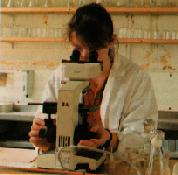School of Science


Head of School : Dr. B. Place
Secretary : Ms. P. Ryan
Secretary : Ms. M. O'Dea
Secretary : Ms. B. Malone
Course Data - Places Available, Cut Off Points and Grant availability.
Departments:
 Computing & Mathematics
Computing & Mathematics
 Life Sciences
Life Sciences
 Physical Sciences
Physical Sciences
Computer Technician: Pat Folan
Computer Technician: Michael Langan
Computer Technician: Joan McDonagh
Computer Technician: Cecilia Slattery

Most wealth-creating activity is Science-based: for example, mineral and oil exploration and mining/extraction, all of agriculture, electricity generation, chemical industry, pharmaceuticals, automobile manufacture, food production and processing, consumer goods production, computer manufacture etc. All require a sound scientific understanding and application of the principles of science. Many service industries also require scientific training, including a wide range of sales and marketing activities, pollution control and monitoring and waste management.
The world's major economies all invest very heavily in scientific training and education for the very obvious reason that an understanding and application of scientific principles is fundamental to improvement of the quality of life and economic growth.
It is important to recognise that a study of science is both rewarding and exciting. Opportunities of rewarding employment exist in a vast range of activities at a variety of levels suitable for those achieving modest success in the National Certificate programmes right up to advanced post graduate level in the sciences.
The School of Science has three departments. These are: Department of Life Sciences, Department of Physical Sciences, Department of Mathematics and Computing.
A wide range of courses exists within the School. Students are recruited, mainly from Leaving Certificate, into the following Certificate courses:
*National Certificate in Science (Applied Biology, Applied Chemistry, Instrument Physics).
* Recruitment to any of the above three Certificate courses is through a common first year general science foundation course, with students indicating their preference for physics, chemistry or biology at the end of the first year. This gives students who may not have taken all three subjects to Leaving Certificate an opportunity to sample each one. Entry to a particular option in second year is subject to availability of places.
National Certificate in Computing (Analyst Programmer, Business Applications): Recruitment is through a common first semester computing foundation course, with students indicating their preference for Analyst Programmer or Business Applications at the end of the first semester. Most students will not have had any serious programming background and this gives an opportunity to evaluate their programming ability and/or area of interest. Entry to a particular option in the second semester is subject to availability of places and resources.
Other Certificate courses on offer are: Certificate in Medical Laboratory Science, National Certificate in Aquaculture.
Transfers from other colleges into year 2 of the Certificate courses are also considered, subject to adequate academic prerequisites and availability of places on a course.
Currently, there are six Post-Certificate courses on offer. Five of these are National Diploma courses: National Diploma in Science(Fine Chemicals/Pharmaceuticals), National Diploma in Chemical Studies, National Diploma in Applied Aquatic Sciences, National Diploma in Computer (Software Development), National Diploma in Technology (Industrial Instrumentation), B.Sc. in Software Development.
Recruitment onto these courses would be a normal progression from the Certificate courses in-house and transfers from Certificate courses in other colleges. These courses are also open to holders of B.Sc.(Gen) who have the necessary academic prerequisites.
All courses are offered subject to the availability of places.
Planned future developments within the School of Science are:
* Development of a modular, semester band system of courses.
* Negotiations with the NCEA for conversion of the Honours Degree in Aquaculture to a more broadly based Honours Degree in Aquatic Sciences/Aquaculture have begun and a positive outcome to this endeavour is anticipated.
The School of Science has been involved with RTC Cork and Kevin Street College of Technology for a number of years in the provision of an Honours Degree in Medical Laboratory Science. Certificate holders can now complete a degree by two further years of study in Dublin or Cork.
Co-operation with institutions within the European Community has continued to increase. The School has been involved in several ERASMUS programmes involving both student and lecturer exchanges, as well as TEMPUS, PETRA, COMETT etc. Contacts with British institutions have been particularly active as our graduates are eagerly sought by these colleges for further study.
A review of all courses in the School of Science is taking place at the time of going to print. Some modifications of courses may take place in the interim. In addition, the School is developing a modular semester-based scheme for all courses. As a result of this development and increased student numbers, a wider range of options may be offered in future years.









 Computing & Mathematics
Computing & Mathematics Life Sciences
Life Sciences Physical Sciences
Physical Sciences



